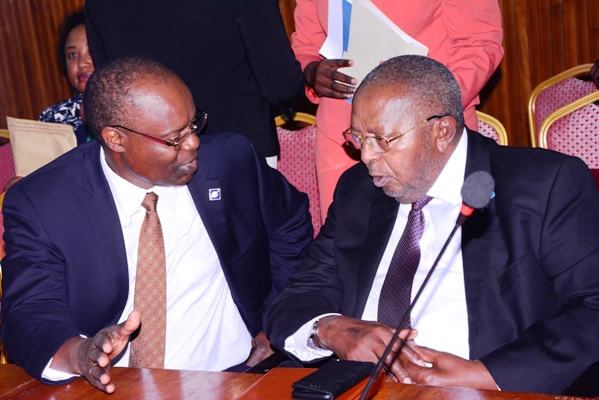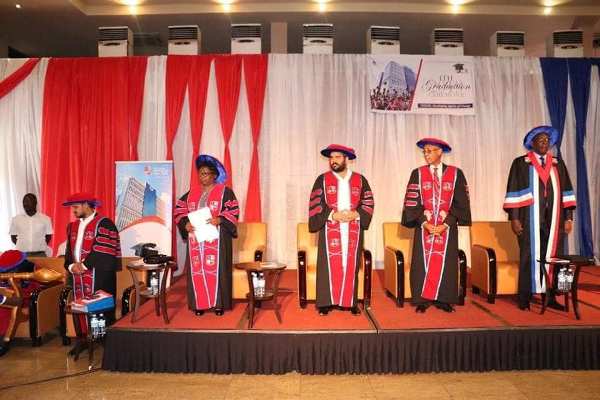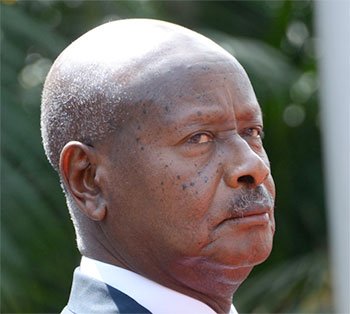The Parliamentary Committee of Commissions, Statutory Authorities and State Enterprises (COSASE) has for the last three months been investigating Bank of Uganda (BoU) over the controversial closure and sale of seven defunct banks.
The investigations followed the special audit report by the Auditor General that raised a number of queries in the manner the banks were closed and sold.
COSASE is expected to table the report before Parliament soon.
The seven banks in question include Teffe Bank, International Credit Bank Limited, Greenland Bank, Co-operative Bank, National Bank of Commerce (NBC), Global Trust Bank and Crane Bank Limited.
During the probe, a number of shocking revelations have been made; selling banks without inventory reports and auctioning them via phone calls have been the major ones.
At one point, BoU Governor Prof. Emmanuel Tumusiime-Mutebile said liquidation reports were hidden away from him by the junior staff, raising key questions on whether he was in-charge of the Central Bank.
Apart from Mutebile, other key players in the closure and sale of some banks are; Dr. Louis Kasekende, the Deputy Governor, Justine Bagyenda, the former Executive Director-Supervision and Ben Ssekabira, Director Financial Markets, Development and Coordination.
In almost all the cases, BoU didn’t carryout proper due- diligence in the closure and sale of the banks in question.
In case of Crane Bank, the Central Bank splashed Shs478.8bn as liquidity support between 21st October 2016 and 9th January 2017 yet the bank needed less money to stay afloat.
A number of analysts say heads must roll at BoU and the culprits must face the law. Industry players also want the Financial Institutions Act to be amended so that Bank of Uganda doesn’t have powers to close banks with impunity.
“Bank of Uganda has been conniving with unscrupulous people to close and sell banks with impunity. Government should take away such powers from the Bank (BoU); there should be better and straight ways of closing and selling a bank,” a retired industry player, who didn’t want his name revealed.
“It is absurd that some banks were almost singlehandedly closed by Bagyenda by a mere phone call. There is no law that gives her such powers,” he added.
It is worth noting that the Abdu Katuntu led Committee has not only unearthed the rot at BoU, but also revealed how taxpayers have lost billions in the closure of banks.
For example, BoU paid MMAKS Advocates lawyers a whopping Shs914 million for legal advice during CBL intervention, resolution and advice on the sale of CBL assets and assumption of liabilities.
The law firm would further be paid extra Shs3 billion as 5% commission monies recovered from CBL shareholders, bringing the total to Shs4.2bn including other commissions.
According to analysts, this was a rip off of taxpayers’ money given the fact that they were not offering complex tasks. Additionally, analysts want all taxpayers money that was irregularly spent during the closure and sale of the said banks recovered.
Dr. Fred Muhumuza, an analyst and Economics Lecturer at Makerere University says BoU is a good crisis that should not be let go to waste.
He says the long-awaited report shall either take Uganda’s banking sector and the economy at large forward or backwards.
“From the probe proceedings, it’s clear that longevity isn’t good for institutions like Bank of Uganda,” he says, adding that some people act with impunity because of overstaying in the same position at the same work place.
The report is expected to come up with recommendations on reforms to be undertaken at BoU.
It is worth noting that Bagyenda revealed that Uganda’s financial sector is full of ethical and governance challenges.
In her hand over report to her successor, Dr. Tumubweine Twinemanzi, Bagyenda said, “The financial sector continues to face governance and unethical challenges across the board. This includes concealment of information, provision of misleading information and possible collusion; they may need to strengthen market intelligence section of the Directorate.”
On whether the inquiry shows a broken system at BoU, Twinemanzi said: “Let’s wait until end of the process; when the report is out, we shall have a discussion on fixing [the issues raised].”
Appearing before COSASE, Mutebile admitted that that there are challenges at the Central Bank that have been exposed during the probe.
“I want to thank you [Abdu Katuntu, the COSASE Chairperson] in particular for the candid approach to tackling issues that needed to have been addressed [by BoU]…I would like to express my appreciation to the Auditor General for his report which raises issues that will definitely culminate to the improvement in the operations of the Bank,” Mutebile said in his closing remarks.
He added: “The bank acknowledges the relevance of this evidence and we are confident that it will enhance transparency and accountability which are key values [for the Central] Bank. This interaction has highlighted the shortfalls within our processes, policies and practices.”
He also pointed out that it has been a learning process not only for the top management, but also junior staff who have followed the proceedings closely.
“I am confident that resulting from this process, we will review practices and policies in order to improve our capacity to perform the functions of the Central Bank better,” he said, adding that it is incumbent upon them to put in place measures to better the institution and visibly boost the confidence in the Central Bank.
“We want to see a stronger financial sector and economy built on the confidence that the public has in us. The staff changes made in February 2018 were intended to address some of the challenges that we knew, but have become all too evident in the last two weeks,” he said.
“The interaction with COSASE has so far helped us to expose some of challenges to the natural medicine of air and light so we can address these challenges better. Further changes will be done in due course in order to restore the Bank’s image,” he added.
He however pointed out that Bank of Uganda was right to intervene in every case (Bank closed).
“…The delay to act, failure to act, lack of decisiveness in actions taken could easily have led to contagion of financial crisis and eroded savers, business and the economy at large. If we hadn’t intervened, the Committee would be carrying out a different probe,” he said.





